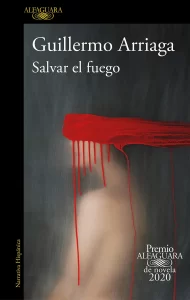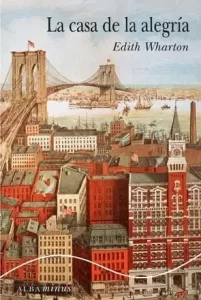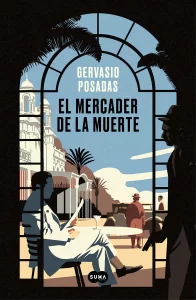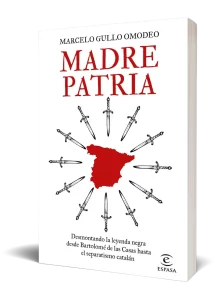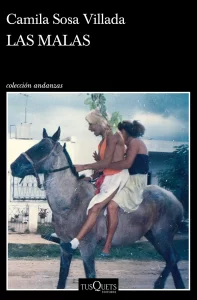When is a better time to read a book than the summertime? Whether you are headed to the beach on vacation or you are close to home, pick up a book to transport you to a whole new world. Carmen Posadas, award-winning author and member of the Queen Sofía Spanish Institute Cultural Committee in the field of Literature shares five must-read books in Spanish.
1. Salvar el fuego by Guillermo Arriaga Jordán
“‘The flame of a match lasts only a few seconds, but it is capable of setting fire to a forest.’
Salvar el fuego is a story that explores the ability of human beings to cross the borders of madness, desire and revenge. Marina is a choreographer, married, with three children and a conventional life. José Cuauhtémoc comes from the extremes of society, a murderer sentenced to fifty years in prison, a lion behind glass, always threatening and ready to attack. An unlikely relationship develops between the two. Little by little, she enters an unknown and brutal world until she descends into the very bowels of the fire.
With Shakespearean overtones, frenetic rhythm and great tension, this novel recounts the paradoxes of a country and the fiercest contradictions of love and hope.”
2. La casa de la alegría by Edith Wharton
“Wharton’s first literary success—a devastatingly accurate portrait of New York’s aristocracy at the turn of the century—is considered by many to be her most important novel, and Lily Bart, her most unforgettable character. Impoverished but well-born, the beautiful and beguiling Lily realizes a secure future depends on her acquiring a wealthy husband. But with her romantic indiscretion, gambling debts, and a maelstrom of social disasters, Lily’s ill-fated attempt to rise to the heights of society ultimately leads to her downfall.
From the conventionality of old New York to the forced society of the French Riviera, Wharton weaves a brilliantly satiric yet sensitive exploration of manners and morality. The House of Mirth reveals Wharton’s unparalleled gifts as a storyteller and her clear-eyed observations of the savagery beneath the well-bred surface of high society.”
3. El mercader de la muerte by Gervasio Posadas
“The journalist José Ortega travels to Monaco with the hope of producing a report that will allow him to regain the prestige lost after years as a correspondent in Berlin. In Monte Carlo he comes into contact with Basil Zaharoff, the most mysterious millionaire in Europe at the time, and will soon discover that the secrets that the old man keeps are coveted by many who will stop at nothing to achieve their goal.
Gervasio Posadas returns to the literary scene with a magnificent novel set in the turbulent Monte Carlo between the wars and based on real events that has all the necessary ingredients of an exciting historical thriller: an enigmatic old man surrounded by a black legend, a narrator trapped between obligation and convenience, murders, celebrities from the high society of the 30s.”
4. Madre Patria by Marcelo Gullo
“Dismantling the Black Legend from Bartolomé de las Casas to Catalan separatism.”
“In Madre Patria, Professor Marcelo Gullo Omodeo shows that what is happening now in Spain, in its historical and geographical context, is impossible to separate from Hispanic America. The pending accounts are the same: strengthen democracies and ward off territorial instability, heads and tails of the same coin. It is surprising that the author lives the deep crisis that Spain is going through with so much involvement and more sense of responsibility than many Spaniards.” Maria Elvira Roca Barea
5. Las malas by Camila Sosa Villada
“When she arrived in the capital Córdoba to study at the university, Camila Sosa Villada went one night, scared to death, to spy on the travestis in Parque Sarmiento and found her first place of belonging in the world. Las malas is a rite of passage, a fairy tale and horror, a group portrait, an explosive manifesto, a guided tour of the author’s imagination and a chronicle different from all of them. The two trans facets that most repel and terrify the well-thought-out society converge in her DNA: travesti fury and the party of being travesti. Marguerite Duras, Wislawa Szymborska and Carson McCullers coexist in her literary voice. The latest phenomenon in Argentine literature, translated into German, French, Norwegian and Croatian.”


